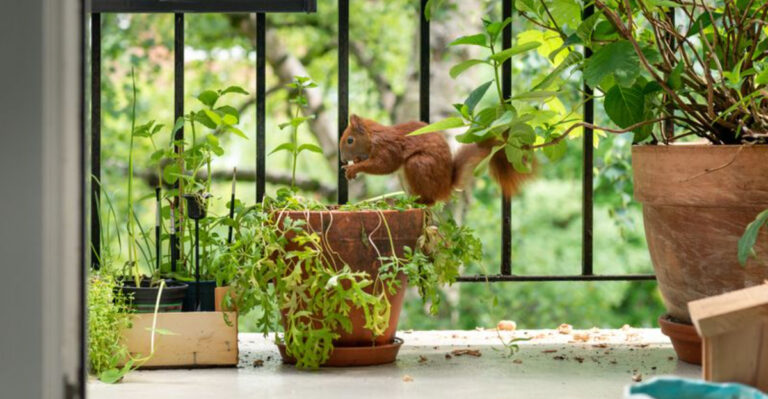11 Time-Tested Reasons Why You Should Never Own Dachshunds
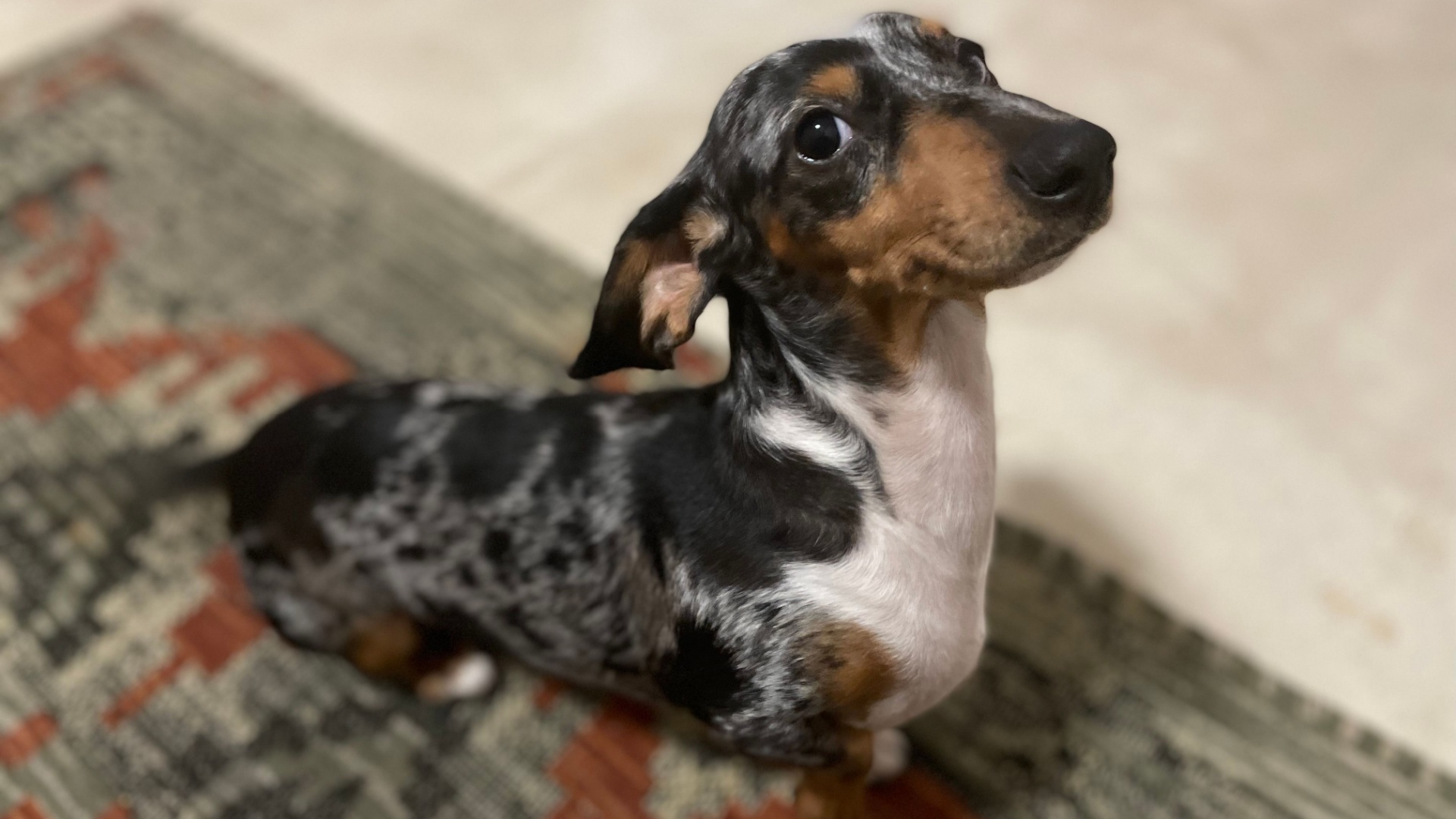
This is not one of those classic stories of discouragement where you end up wondering: “Should I get a dog in the first place?” or “Why do I need all this?”
Dachies are far from discouraging you, but as a long-time owner, I have some reasonable heads up that might help you get a clearer picture.
So, let’s Dach it up!
#1 Say Goodbye To Dreamy Nights
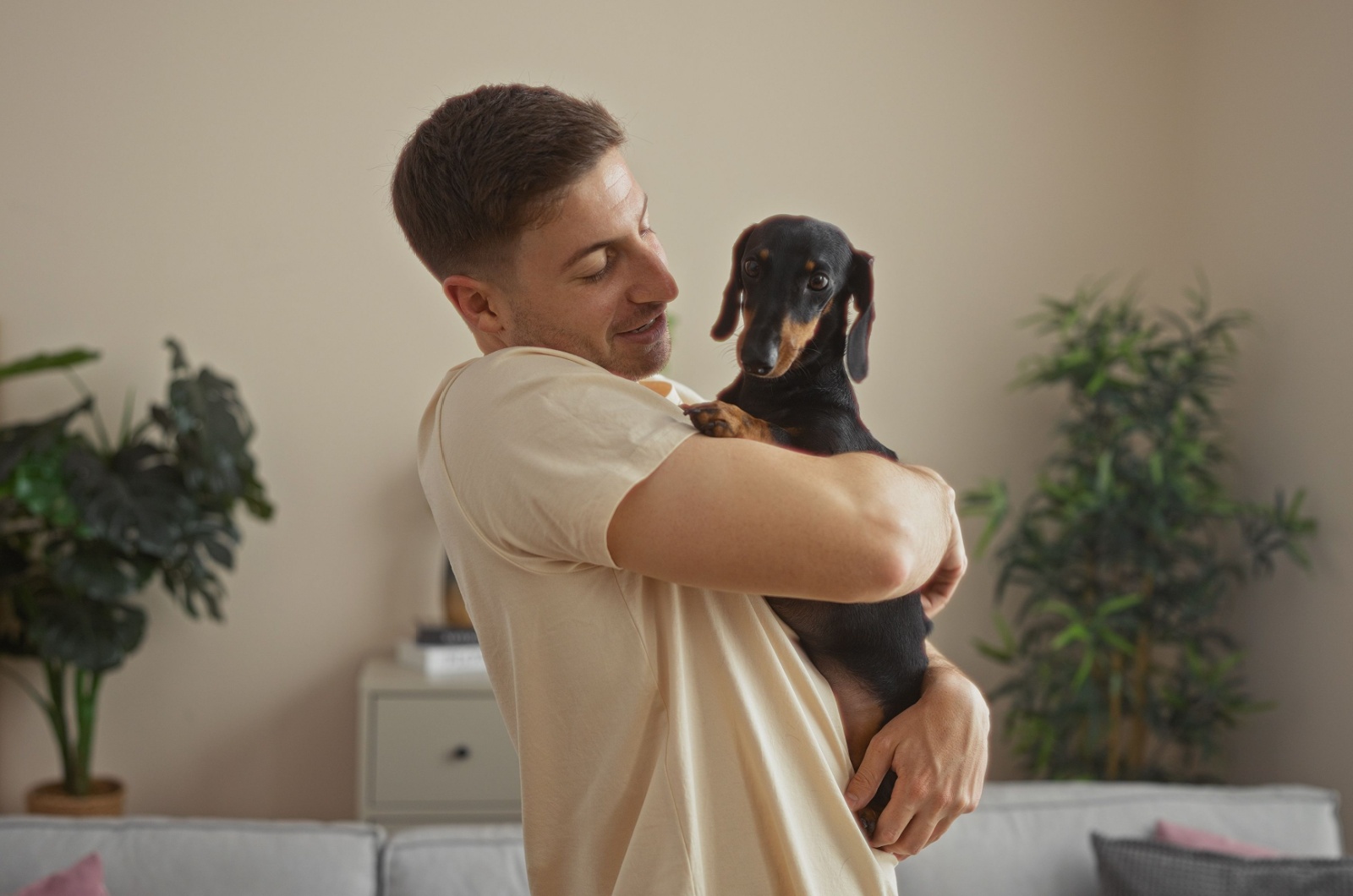
Owning a Dachshund often means saying goodbye to peaceful, uninterrupted nights. These little dogs are incredibly vocal and have a seemingly endless capacity to bark, especially when the world outside is quiet and still.
My Dachie, Cooper, has kept me awake more nights than I care to count with his persistent barking. Whether it’s a passing car, a neighbor’s dog, or even the sound of the wind, Dachshunds feel the need to alert everyone within earshot.
It’s not just a quick woof—it’s a full-blown announcement that can last for minutes, or longer if they’re particularly excited. While you might get used to it over time (with good earplugs), your neighbors might not be so forgiving.
For anyone living in a small apartment or shared space, this vocal tendency can quickly become a challenge. Owning a Dachshund means embracing their noisy personality or rethinking if they’re the right fit for your home.
#2 Off-Leash Is Never Gonna Happen
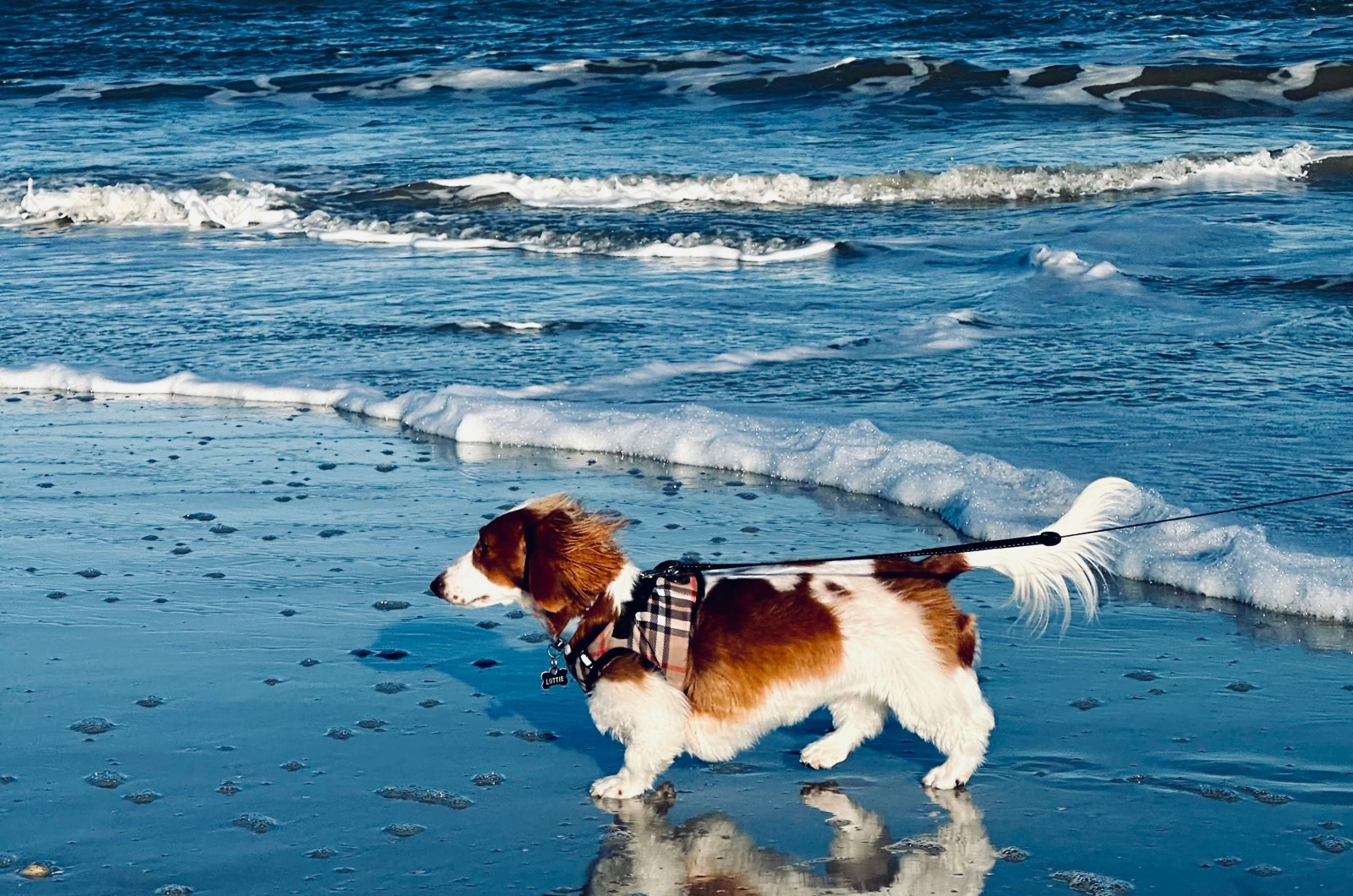
Dreaming of carefree, off-leash walks with your dog? Think again if you’re considering a Dachshund. These little adventurers are notorious for their prey drive and distractibility.
My boy Cooper once disappeared into the woods for hours because a raven caught his eye. I thought it would be a perfect opportunity to try off-leash training, but within seconds, he bolted after the bird, completely ignoring my calls.
Even on their most obedient days, Dachshunds can be easily sidetracked by a moving leaf, a scurrying squirrel, or a random sound. Their hunting instincts are deeply ingrained, and once their focus locks onto something, it’s nearly impossible to pull them back.
For nature lovers who dream of relaxed off-leash hikes, a Dachshund might not be the ideal companion unless you’re prepared for constant vigilance—and a leash.
#3 You’re Not The Boss, They Are

Dachshunds may be small, but they have big personalities, and they’re not afraid to show it. These stubborn little dogs love doing things their way and don’t take kindly to being forced into situations they don’t like.
One day, when I tried to move Cooper off my chair, he growled in protest and even tried to bite me. While it’s funny in hindsight, it’s a reminder of just how strong-willed these dogs can be.
Their independent streak makes training a challenge, and if they decide they’re not interested, there’s little you can do to change their minds.
Dachshunds are wonderful family dogs, but you’ll need patience and a sense of humor to deal with their bossy tendencies. Remember, in their minds, they’re running the show!
#4 Forget About Working Late
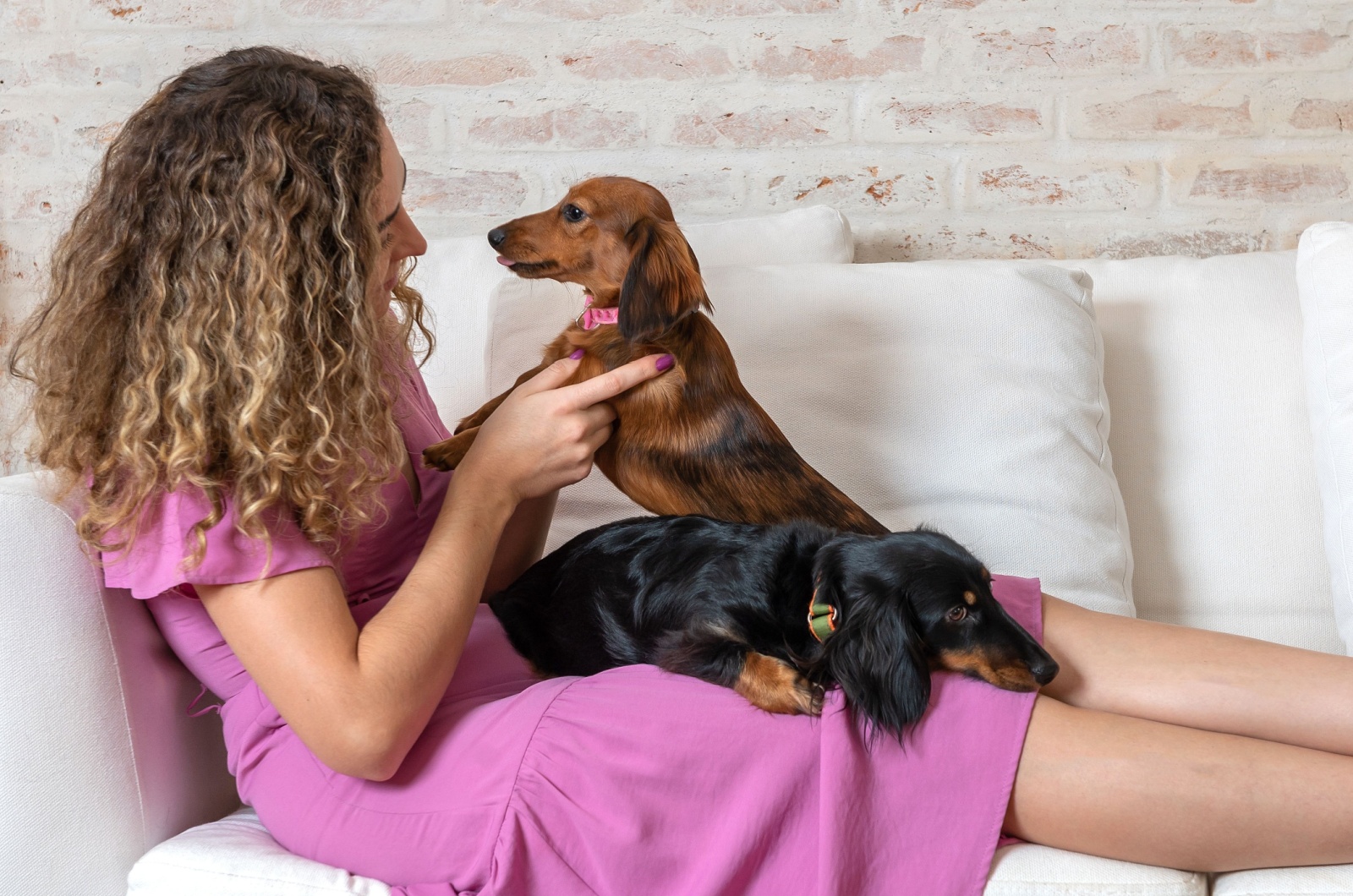
Dachshunds crave attention and don’t tolerate being left alone for long periods. If you have a busy work schedule or long hours away from home, think twice before adopting one of these affectionate yet needy pups.
Separation anxiety is common among Dachshunds, and their frustration doesn’t magically disappear when you return home. Chewed-up furniture, scratched floors, and shredded cushions are just some of the consequences of their anxious behavior.
Even when you’re home, they can remain clingy and demand constant attention, which can be overwhelming if you’re trying to work or relax.
Dachshunds thrive in homes where someone is around most of the time, providing the love and interaction they need to stay happy and calm.
#5 They Literally Have Too Much On Their Back
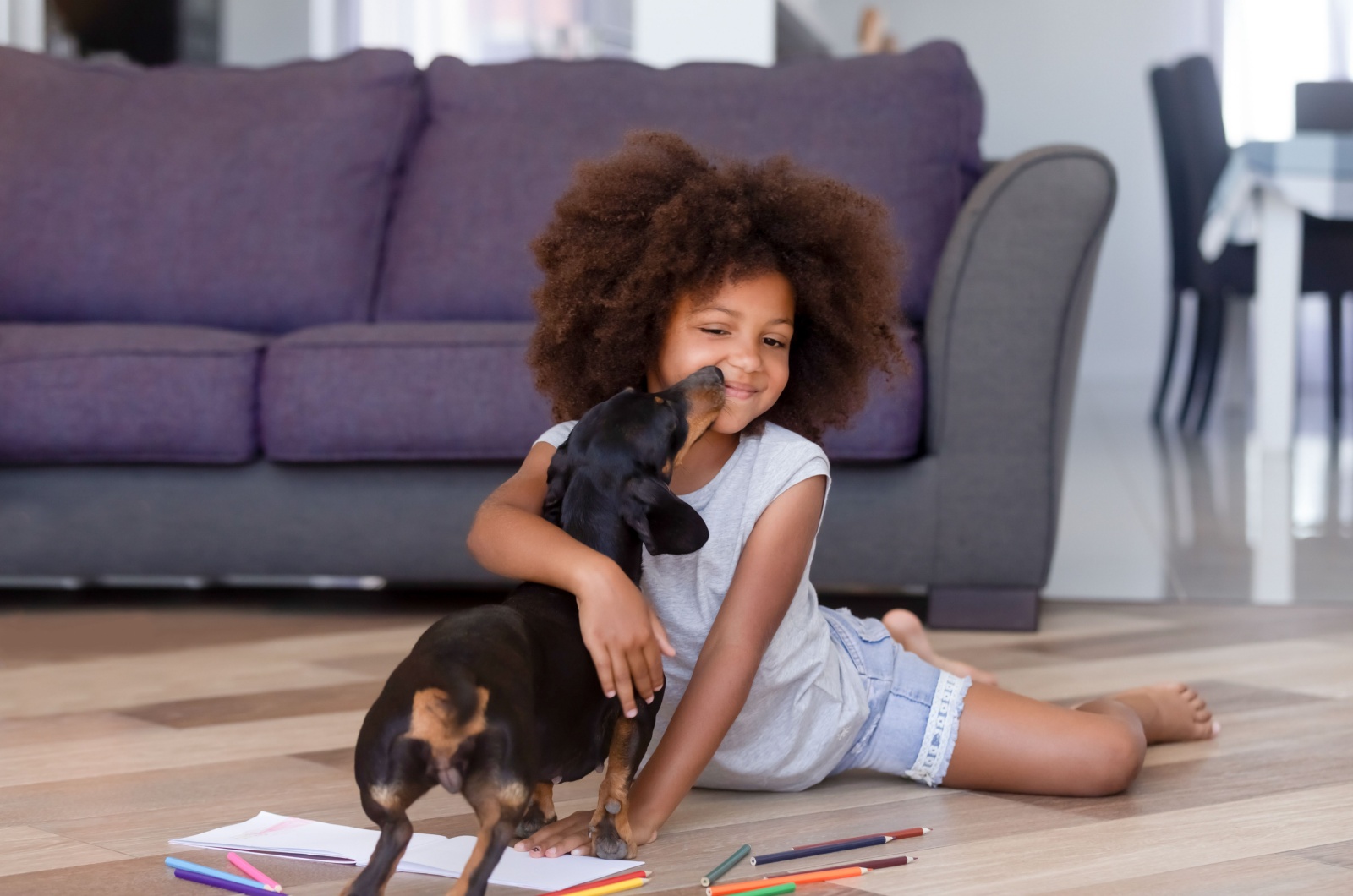
Dachshunds are undeniably unique with their long backs and short legs, but this distinctive anatomy comes with challenges. They’re prone to intervertebral disc disease (IVDD), a common health issue that can lead to pain, mobility problems, or even paralysis.
Activities like jumping on furniture, climbing stairs, or rough play can put undue strain on their spines, making injury a real concern. Despite their hunting heritage and strong prey drive, Dachshunds aren’t built for intense physical activity like larger breeds.
If you’re looking for a robust, high-energy dog that can keep up with demanding adventures, Dachshunds may not be the best fit. However, with proper care and precautions, they can still lead happy, active lives.
#6 They Run, And Then They Run Some More

Don’t let their small size fool you—Dachshunds have boundless energy and a love for running. These little dogs need plenty of exercise to stay physically and mentally balanced.
Cooper thrives on at least an hour of activity daily, whether it’s a brisk walk, a game of fetch, or chasing toys around the house. Without enough stimulation, Dachshunds can become restless, moody, and even destructive.
They might not have the build for high-performance agility, but their determination and enthusiasm more than make up for it. If you’re looking for a laid-back lapdog, think again—Dachshunds are small but mighty when it comes to their energy levels.
#7 So Long, Rainy Days!
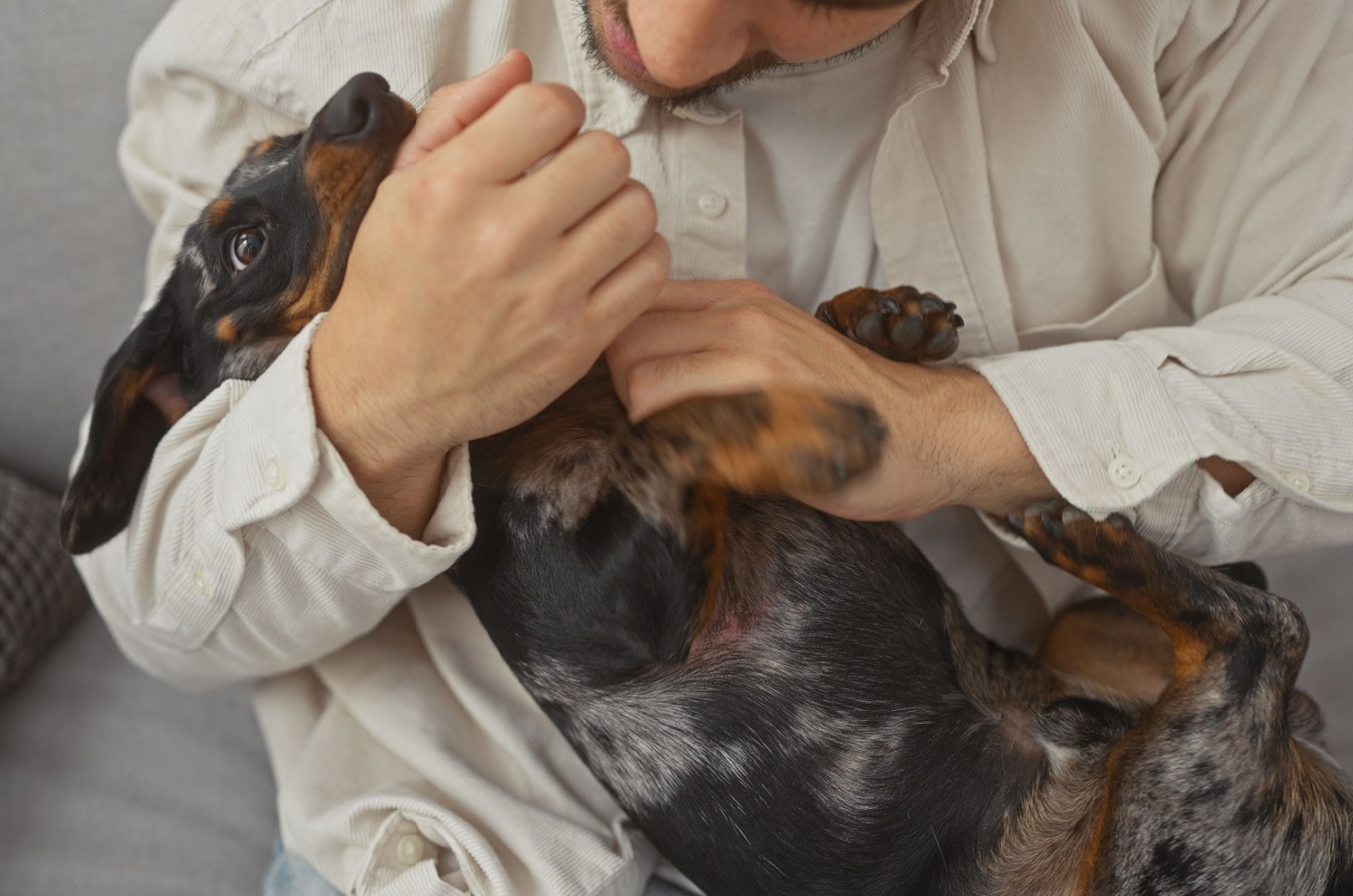
Dachshunds and rainy weather are not a match made in heaven. These short-legged pups absolutely despise getting wet, and they’ll do just about anything to avoid stepping outside in the rain.
It’s not just about being fussy—imagine having a belly so close to the ground that even light rain turns into a mud bath.
Wet Belly Syndrome (WBS) is a real struggle for Dachies, and convincing them to go out for a walk during bad weather often turns into a battle of wills.
If you’re someone who loves the romance of long, rainy walks, a Dachshund might not be your ideal companion. Instead, these pups are happiest curled up indoors, away from the soggy chaos outside.
#8 Your Remote Is Their Chew Toy
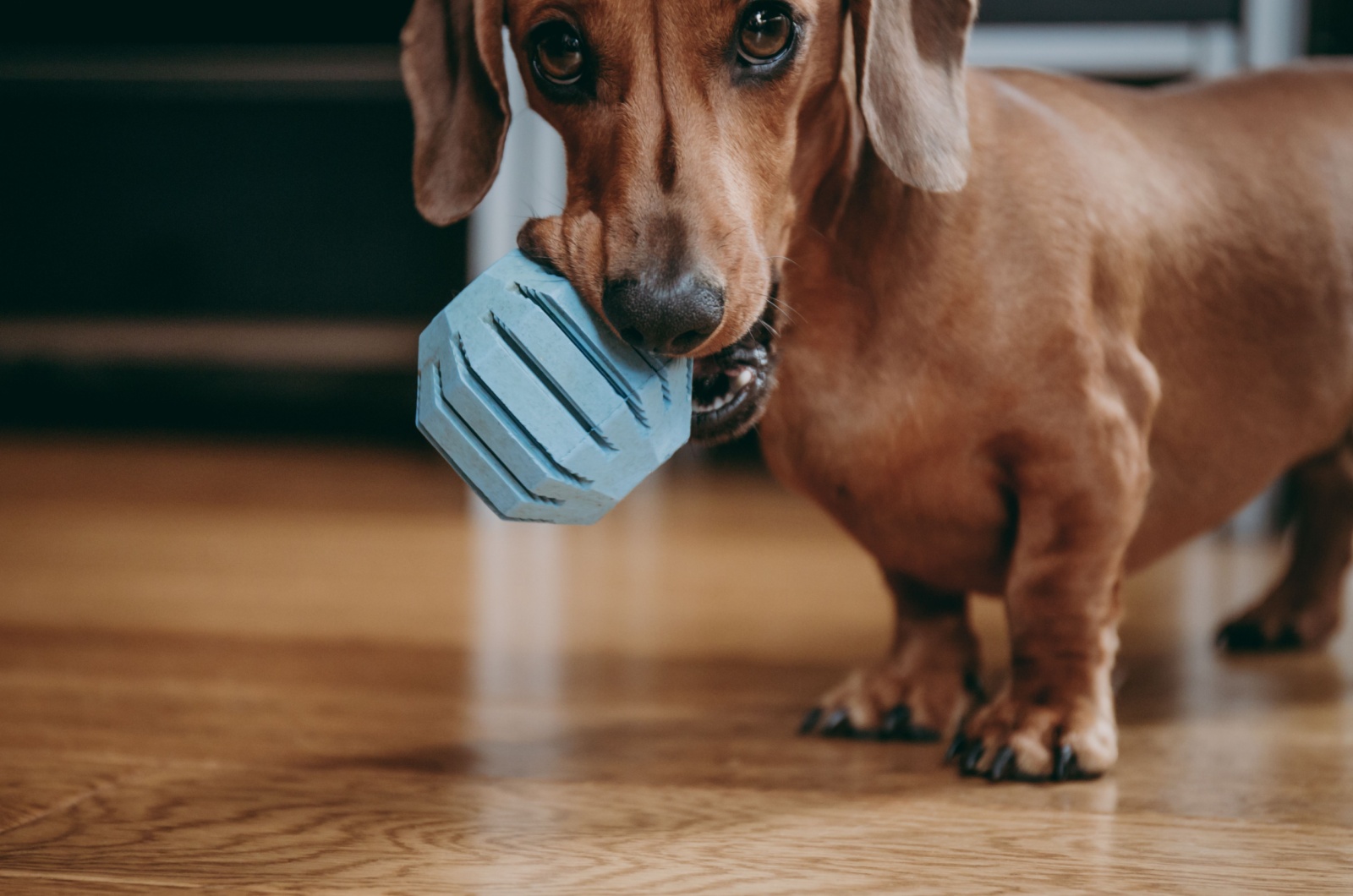
Dachshunds are relentless chewers, and their love for sinking their teeth into just about anything is one of their most notable—and often frustrating—traits.
Their enthusiasm for chewing often extends to household items like remote controls, shoes, and even furniture, leaving you with a trail of destruction. This behavior is deeply rooted in their hunting instincts, as they were originally bred to chase and catch small game like rabbits and badgers.
The urge to “dig in” or gnaw on things is just an extension of their prey drive. My Dachie, Cooper, has single-handedly destroyed more remotes than I care to admit, despite my best efforts to redirect his chewing tendencies toward appropriate toys.
I’ve tried everything from bitter sprays to keeping things out of reach, but this little guy always finds something new to gnaw on. Training and supervision are essential, but even then, it’s an ongoing battle. You have to be vigilant, and even then, the battle isn’t always won.
If you value your belongings and don’t want to constantly replace chewed-up items, you might need to rethink whether a Dachshund is the right choice for your home. The constant chewing might just wear you down!
#9 They’re Exclusively City Boys And Girls
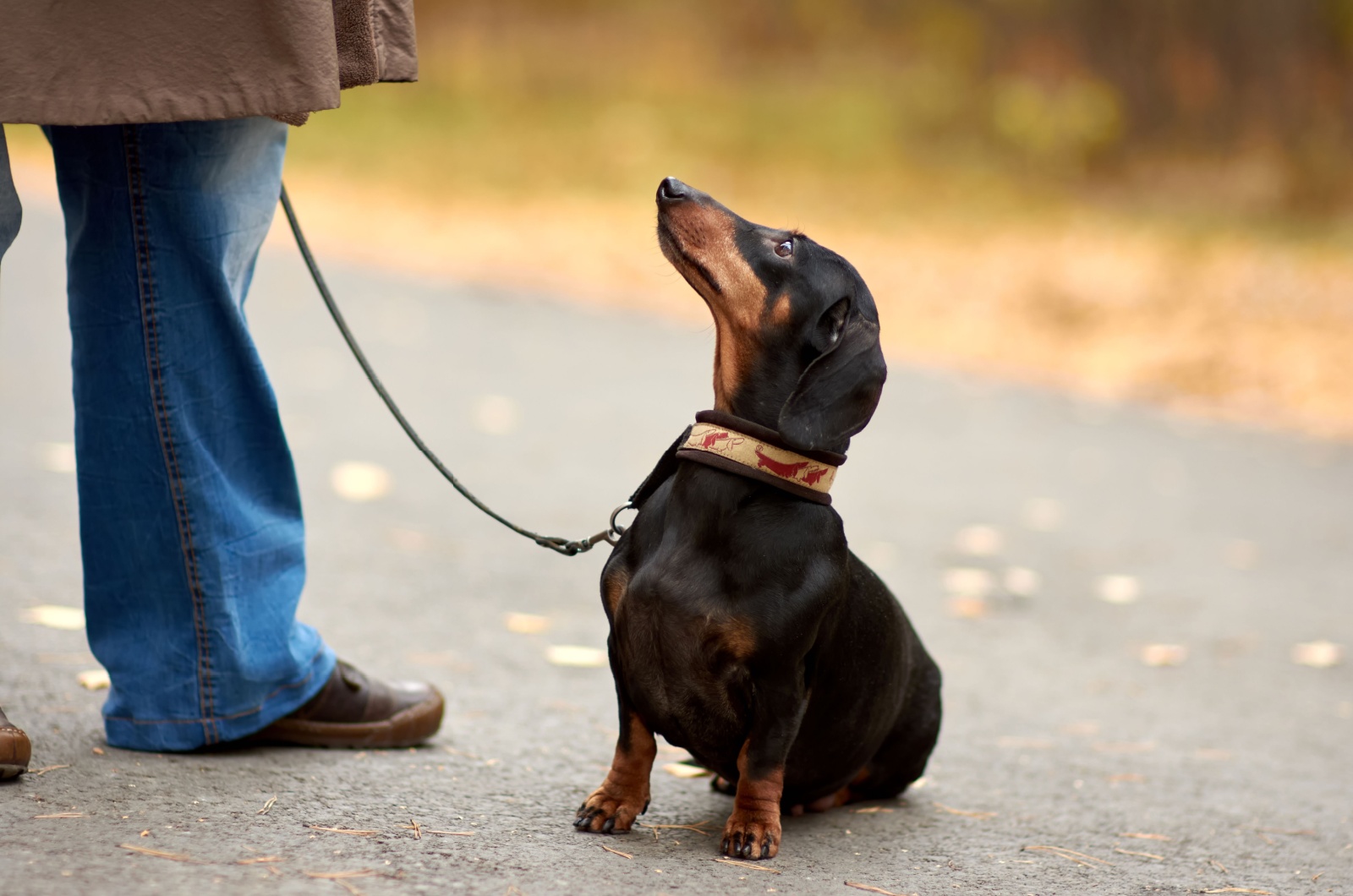
Dachshunds thrive in urban environments, where they can regularly interact with people, other dogs, and experience the excitement of a busy, dynamic world.
These little dogs have a strong need for socialization and are not well-suited for isolated country living, where human interaction and other dogs are few and far between. Without ample opportunities to socialize, Dachshunds can become anxious and restless.
Their intelligence and energy levels are high, so when left alone with little to do, they can quickly become bored. This boredom often leads to behavioral issues, like excessive barking, chewing, or even digging. Dachshunds love being the center of attention, and without constant interaction, they can easily develop separation anxiety or start exhibiting undesirable behaviors.
They need a variety of activities to keep their minds engaged—whether it’s a new trick to learn, a daily walk, or just some time spent playing with their human family members.
If you’re considering bringing a Dachshund into your home, it’s important to understand that they need regular social stimulation to stay content and well-adjusted. Weekly visits to dog parks, busy neighborhoods, or playdates with other dogs are essential for meeting their social needs.
So, if you’re looking for a low-maintenance, independent dog, a Dachshund might not be the best fit. These pups thrive on constant interaction, and without it, they may not be as happy or well-behaved as you’d hope.
#10 Grooming Isn’t Always Easy

While Dachshunds don’t require extensive grooming compared to some long-haired breeds, they do need regular maintenance to keep their coats healthy.
Long-haired Dachshunds, in particular, can be prone to tangles and mats, which require consistent brushing to avoid. Even short-haired Dachshunds shed more than you’d expect, meaning your furniture and clothes may quickly become covered in fur.
On top of that, Dachshunds are notorious for hating bath time. Cooper practically turns into a slippery escape artist every time I try to give him a bath, making the process a full-blown adventure. It’s always a battle to get him into the tub, and once he’s in, it feels like a wrestling match to keep him there.
If you’re looking for a low-maintenance dog in the grooming department, be prepared for the occasional struggle with your stubborn Dachie. Regular brushing and patience are essential if you want to keep your home and your dog looking their best.
#11 Not the Best Fit for Families with Small Kids
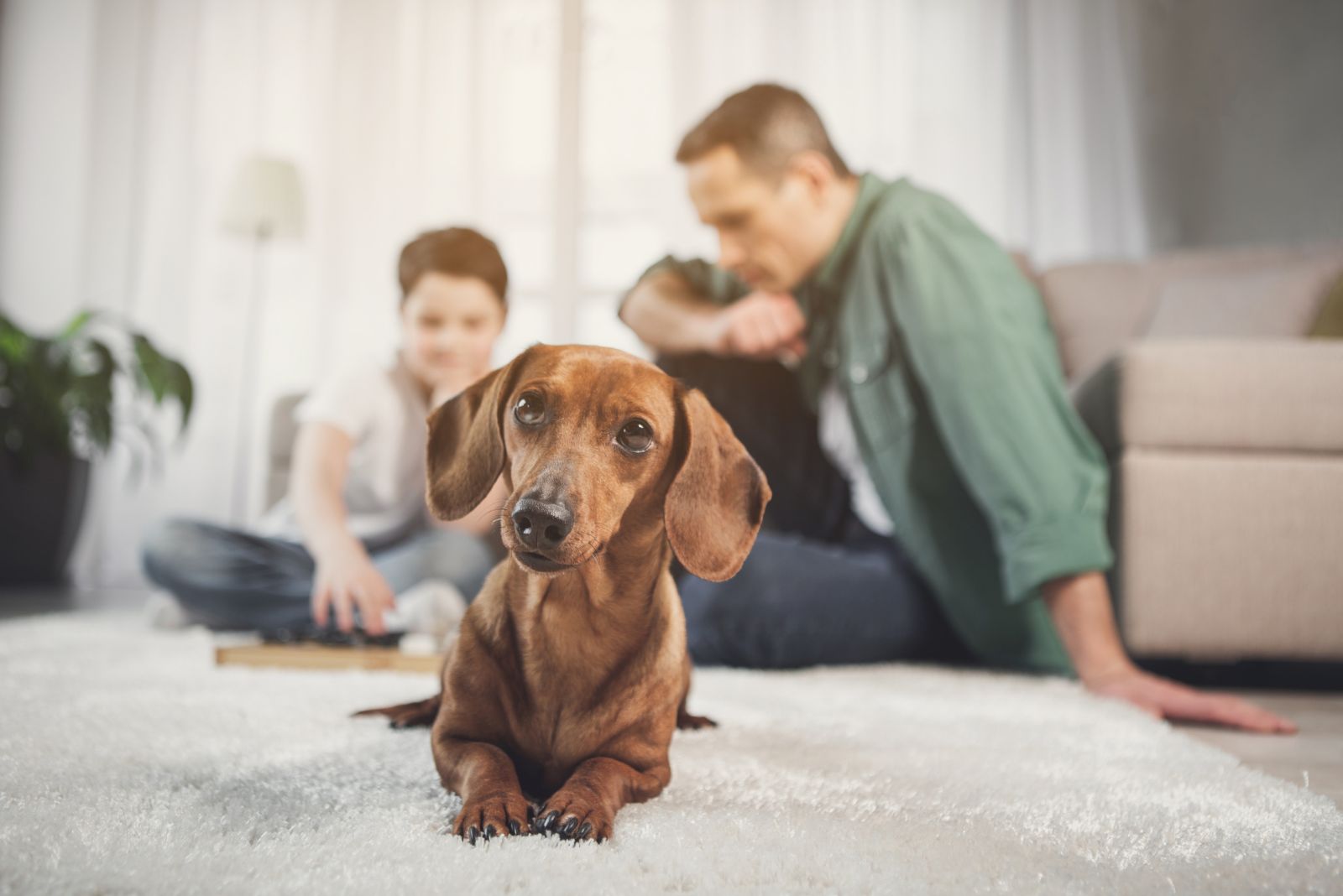
Dachshunds may be cute and cuddly, but their independent and sometimes moody nature can make them a tricky choice for families with very young children.
These dogs don’t always appreciate rough handling or sudden movements, which can lead to growling or snapping if they feel threatened.
While they can form strong bonds with older kids who respect their space, Dachshunds are not the type to tolerate endless tugging or tail-pulling.
My Cooper loves being the center of attention but only on his own terms, and he’ll let you know when he’s had enough. If you have toddlers or younger children, it’s important to teach them how to interact gently with your Dachshund to ensure a harmonious relationship.
Still, You Gotta Give Them Credit For…
Loyalty
You gotta give them credit for loyalty. Despite everything you have read so far, Dachies will stick with you through thick and thin, no matter what challenges you face. They’re always by your side, offering unconditional love and companionship.
Their fierce devotion to their owners is unmatched, and they’ll stand guard, protect, and snuggle with you, no matter how stubborn or independent they may seem. That’s why they fairly deserve the spot on the list of the best family dogs in the world.
Whether you’re relaxing on the couch, tackling household chores, or embarking on an adventure, your Dachie will never stray too far from you. Their loyalty is truly something special and something that makes all the chaos worth it.
Show-Time
Even though they might be set in their own ways, these pooches will probably make you laugh more than make you angry.
At the end of the day – everything I truly remember with Cooper is days of laughter, fun, and sassiness.
Social Skills
They might not be the easiest dogs to potty train, but the truth is Dachies are masters of socialization! They can easily get you in social circles and make friends for you.
This is a naturally sociable dog breed that loves spending time with all types of people and all types of dogs. The downside, though, is that they get too friendly too soon. Consequently, they can end up being hurt by a much larger or more aggressive dog.
Empathy
Yes, dogs are capable of being empathic! In her piece, Stacey Colino claims: “Dogs also have ‘affective empathy’—which is defined as the ability to understand someone else’s feelings—toward people who are important to them.”
And, Dachies are first in line to express this emotion. These doggos are capable of catching any sort of emotion, including deepest sorrow. In a strange way, these pooches are capable of helping you cope with the most depressing period of your life.






